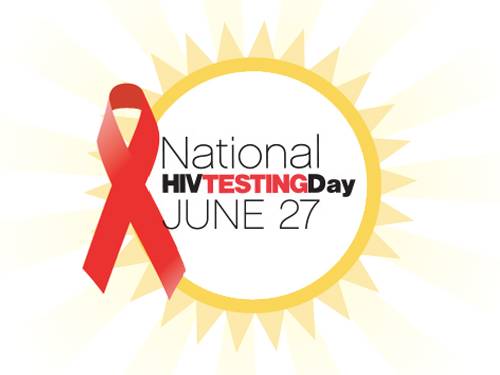Presbyterian AIDS Network provides resources
by Scott O’Neill | Presbyterian News Service
 LOUISVILLE – The Presbyterian AIDS Network (PAN) encourages Presbyterians to observe Presbyterian AIDS Awareness Day on or near June 27. PAN is providing worship, advocacy and informational resources to help individuals and congregations combat the HIV/AIDS epidemic across the nation and around the world.
LOUISVILLE – The Presbyterian AIDS Network (PAN) encourages Presbyterians to observe Presbyterian AIDS Awareness Day on or near June 27. PAN is providing worship, advocacy and informational resources to help individuals and congregations combat the HIV/AIDS epidemic across the nation and around the world.
PAN, part of Compassion Peace and Justice’s Presbyterian Health, Education and Welfare Association (PHEWA), advocates care for persons and families infected or affected by HIV and AIDS. Presbyterian AIDS Awareness Day is a new observance born from a 2016 General Assembly overture that directs “the Stated Clerk to designate one Sunday a year, beginning with 2016 through 2020, as PC(USA) AIDS Sunday for the purpose of raising awareness, lifting prayer and promoting advocacy among PC(USA) members.”
Presbyterian AIDS Awareness Day is held this year in conjunction with National HIV Testing Day, which originated in 1995. George Kerr, co-moderator for PAN and an elder in Westminster Presbyterian Church in Washington, D.C., acknowledged that the short lead time in placing Presbyterian AIDS Awareness Day on the calendar provides a significant challenge for creating awareness among churches and congregants.
“We struggled with how churches were going to find out about this observance, but proceeded to create a comprehensive packet of resources for them to use throughout this year,” Kerr said. “We feel these resources represent some of the best work other organizations are doing within the field, so we highly recommend individuals or churches use them to get involved locally or on a national level, wherever they can.”
Kerr also emphasized that Presbyterian AIDS Awareness Day does not supplant the network’s or the church’s observance of World AIDS Day, which has been held on Dec. 1 every year since 1988.
“This provides PAN an additional opportunity to communicate that we have a lot of work remaining, especially with this new Congress and administration,” Kerr said. “The potential cuts to HIV/AIDS funding could be devastating to people living with HIV or AIDS; the proposed cuts will also hinder prevention and research efforts.”
Ann Jones, a PAN co-moderator with Kerr and elder in First Presbyterian Church of Columbus, Indiana, noted that in this instance, twice the recognition is not only better, but needed.
“The amount of interest or concern about HIV/AIDS has dwindled considerably so we believe it is important to keep the issue before our congregations on a regular basis,” Jones said. “PAN leadership selected June 27 because it is National HIV Testing Day, and in the U.S. prevention has not been stellar. We also like the fact it does not conflict with the Christmas holidays. We do something in our community every year on World AIDS Day and will continue to do so.”
In a letter addressed to members and friends of PAN, which can be read in its entirety in the resource packet, Kerr and Jones note that the proposed 2018 U.S. budget eliminates two critical components of the Ryan White program and cuts HIV prevention by 20 percent; greatly reduces the Minority AIDS Initiative Fund; cuts funding for the National Institutes of Health by 20 percent and reduces the budget for housing and support services for people living with AIDS by $26 million. The letter also notes that Medicaid restructuring is likely to reduce a state’s or community’s ability to prevent AIDS and deliver high-quality health care to those diagnosed with HIV or AIDS.
The potential budget cuts bring fear to Jones, who experienced horrific conditions in Africa as a volunteer with Habitat for Humanity and saw firsthand the effects of the disease on all sectors of the population.
“We’ve made tremendous progress on treatment and prevention over the years, and researchers are still working hard to eradicate the disease. I’ve been hopeful for an eventual cure but the administration’s budget proposals present scary scenarios for huge reductions in Medicaid, the President’s Emergency Plan for AIDS Relief (PEPFAR), and the Global Fund for AIDS, TB and malaria. I cannot imagine the pain and poverty this could create in people’s lives,” Jones said.
Kerr suggests Presbyterians utilize advocacy efforts in reaching out to their local, state and federal representatives to make their opinions and voices heard. Making contact now is particularly timely given the GOP’s recent unveiling of its health care plan.
“Write letters, write emails, make phone calls — the GOP health care plan is hurtful for those living with HIV/AIDS in particular, as well as other chronic illnesses,” Kerr said. “We know grassroots activism is working; they are listening, to a degree, to what the community has to say.”
The Presbyterian AIDS Network is also working on the first National Faith and HIV/AIDS Awareness Day, which will bring several faith communities together on Aug. 27 for a rally and prayer march in Washington, D.C., and 12 different cities.
![]() You may freely reuse and distribute this article in its entirety for non-commercial purposes in any medium. Please include author attribution, photography credits, and a link to the original article. This work is licensed under a Creative Commons Attribution-NonCommercial-NoDeratives 4.0 International License.
You may freely reuse and distribute this article in its entirety for non-commercial purposes in any medium. Please include author attribution, photography credits, and a link to the original article. This work is licensed under a Creative Commons Attribution-NonCommercial-NoDeratives 4.0 International License.
Categories: Advocacy & Social Justice
Tags: AIDS, HIV, HIV/AIDS, PAN, pcusa, presbyterian, Presbyterian aids network, prevention, testing
Ministries: PHEWA